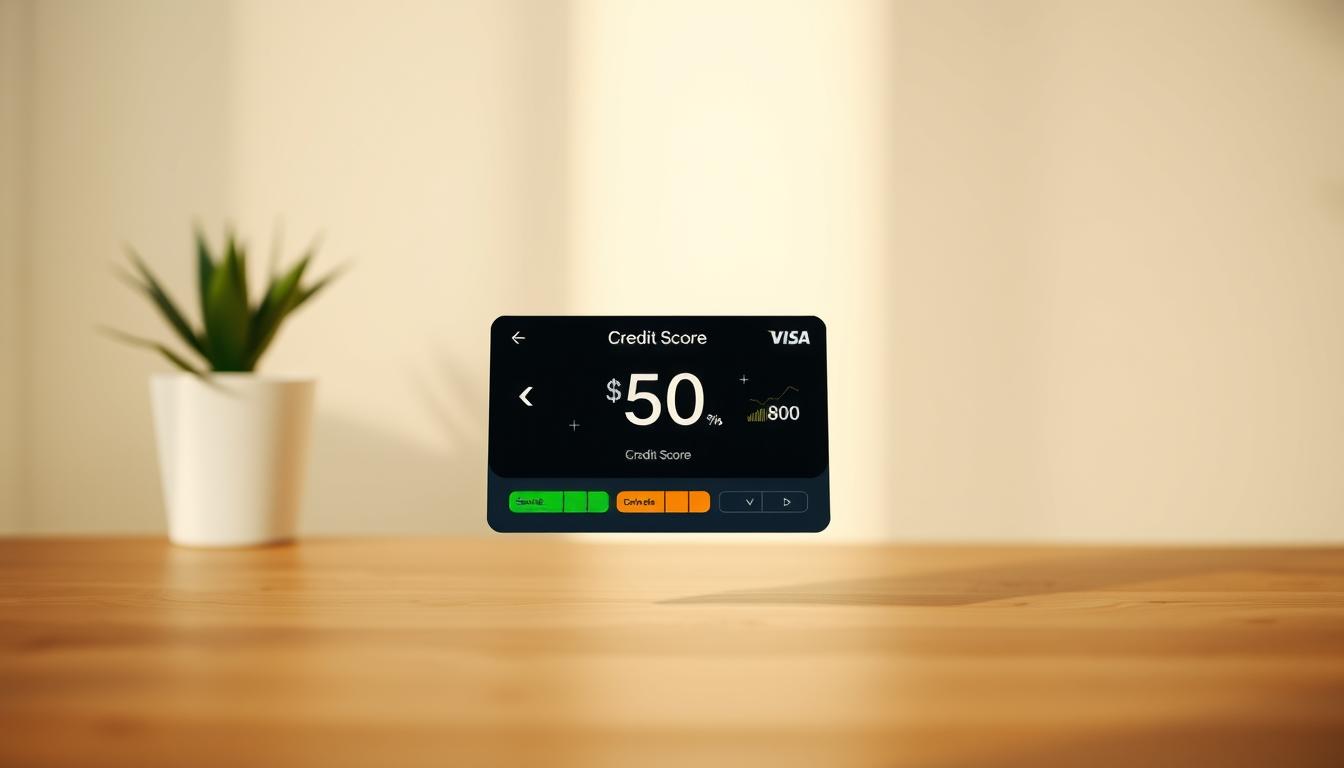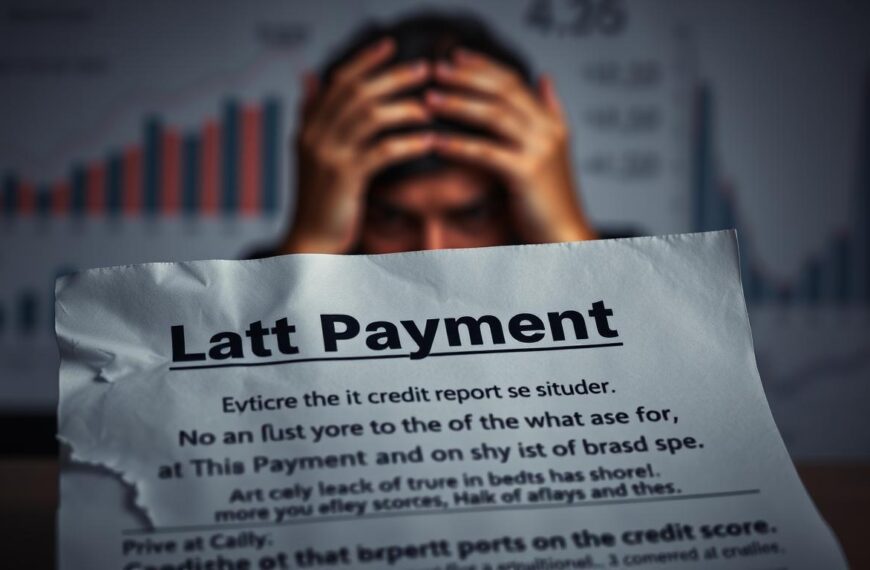In the UK, maintaining a healthy credit score is crucial for securing loans, mortgages, and other financial services. Credit reference agencies like Experian, Equifax, and TransUnion track approximately 350 million records monthly to determine your creditworthiness1.
While a new credit card can eventually boost your score through responsible use, it may cause a temporary dip due to hard inquiries and reduced account age2. Responsible management, such as on-time payments and low utilisation, is key for improvement.
This guide will explore strategies, pitfalls, and techniques for rapid improvement, helping you understand how a new credit card can positively influence your credit profile over time.
Understanding Credit Scores in the UK
Your credit score is a crucial indicator of your financial health, influencing your ability to secure loans, mortgages, and other financial products. Credit reference agencies like Experian, Equifax, and TransUnion maintain detailed records, which are used to determine your creditworthiness3.
Key Components of Your Credit Score
- Payment History: Your track record of on-time payments significantly impacts your score. Late or missed payments can remain on your report for up to six years4.
- Account Age: A longer credit history, with older accounts, can positively influence your score5.
- Balance Levels: Keeping credit utilisation below 30% is generally viewed favourably by lenders3.
Factors That Influence Credit Ratings
Hard inquiries from credit applications can negatively affect your score, though their impact typically diminishes after a few months4. Additionally, loan applications, including those for mortgages, can also impact your credit rating5.
How Credit Cards Impact Your Credit History
Using a credit card can significantly influence your credit history, both positively and negatively. By understanding how credit cards affect your financial profile, you can leverage them to enhance your creditworthiness over time. This section explores the key ways credit cards shape your credit history.
Increasing Available Credit and Managing Utilisation
When you obtain a new credit card, your total available credit increases. This can lower your credit utilisation ratio, which is the percentage of available credit you are using6. For example, if you have a £1,000 limit and spend £300, your utilisation is 30%. Keeping this ratio below 30% is generally favourable to lenders, as it indicates responsible borrowing habits2.
Experts recommend aiming for single-digit utilisation for the best results. A lower utilisation ratio can positively impact your credit score, as it accounts for 30% of your FICO® Score7.
Building a Positive Payment History
Payment history is the most critical factor in determining your credit score, accounting for 35% of your FICO® Score6. Consistently making on-time payments demonstrates financial responsibility and can significantly improve your credit profile. Each timely payment is reported to credit reference agencies, reinforcing your reliability as a borrower2.
Conversely, missing a payment can have severe consequences. A single late payment can remain on your credit report for up to six years, potentially lowering your score significantly7. Therefore, maintaining a flawless payment record is essential for building and maintaining a strong credit history.
For more detailed guidance on improving your credit score, visit our comprehensive guide: how to improve your credit score.
how quickly can a credit card improve my credit score
Improving your credit score with a new credit card can show results within a short period. Many users notice positive changes in their credit profile within 30 to 45 days after responsible usage begins8.
Timing and Initial Benefits of a New Card
Lenders typically update credit reports once a month, but improvements can be seen sooner. For instance, on-time payments and low credit utilisation can lead to score improvements in as little as 30 days8.
Opening a new credit card account can immediately increase your available credit. This reduces your credit utilisation ratio, which accounts for 30% of your credit score calculation9.
Managing Credit Utilisation for a Quick Boost
Maintaining a low credit utilisation ratio is crucial. Aim to use less than 30% of your available credit to see quick improvements. Keeping it under 10% is even better for rapid score boosts8.
| Timeframe | Actions | Impact |
|---|---|---|
| 30-45 days | On-time payments, low utilisation | Noticeable score improvements |
| 1-3 months | Consistent responsible behaviour | Significant score increase |
| 6 months | Sustained good habits | Established positive history |
By managing your payments and balances effectively, you can see improvements in your credit score within a few months. Remember, consistent behaviour is key to long-term credit health.
Effective Strategies for Responsible Credit Card Use
Managing a credit card wisely is key to building a strong financial profile. By adopting responsible habits, you can avoid debt and improve your chances of securing loans at favourable terms.
On-Time Payments and Budgeting for Success
To keep your payments on track, consider setting up autopay. This ensures bills are paid by the due date, avoiding late fees and negative marks on your credit report10.
Budgeting is another crucial strategy. Allocating 50% of your income to necessities, 30% to discretionary spending, and 20% to saving and debt repayment can help maintain financial balance11.
| Strategy | Benefits | Outcome |
|---|---|---|
| Setting Up Autopay | Ensures timely payments, avoids late fees | Positive payment history, better credit profile |
| Following a Budget | Prevents overspending, reduces debt risk | Low credit utilisation, improved financial health |
| Paying Balances in Full | Avoids interest, reduces debt | Lower utilisation ratio, higher credit score |
For more insights on building credit, visit Experian’s guide or learn about subscriptions’ impact on your score at All Personal Finance.
Responsible credit card use not only enhances your financial profile but also minimizes debt risks, making it easier to secure loans in the future.
Avoiding Common Pitfalls and Negative Effects
While using a credit card can be beneficial for your credit profile, there are potential pitfalls to be mindful of. Understanding these can help you avoid unnecessary setbacks on your path to financial health.
Handling Hard Inquiries and Application Timing
Each credit application can trigger a hard inquiry, which may temporarily lower your score12. These inquiries can remain on your record for up to a year, though their impact lessens over time. It’s wise to space out applications and only apply for credit when necessary to minimize this effect.
Minimising the Impact of Reduced Account Age
Opening a new credit card can lower the average age of your accounts, which might negatively affect your score13. Maintaining older accounts and avoiding frequent new applications can help preserve a positive credit history.
Credit reference agencies like Experian, Equifax, and TransUnion track approximately 350 million records monthly1. Responsible management is key to avoiding pitfalls, ensuring your credit score improves steadily over time.
Balancing Your Credit Mix for Best Results
A well-balanced credit mix is essential for maintaining a healthy financial profile. It demonstrates your ability to manage different types of credit responsibly, which can positively influence your credit score14.
Diversifying Between Revolving and Installment Credit
Revolving credit, such as credit cards, allows you to borrow and repay funds up to a set limit, while installment credit, like personal loans, involves fixed payments over a specific term15. A mix of both types showcases your ability to manage various credit obligations effectively.
Maintaining appropriate credit limits is crucial. Ensure your credit utilisation remains below 30% to avoid negatively impacting your score16. For instance, if your limit is £1,000, keep your balance under £300.
Practical strategies for diversifying credit include obtaining a personal loan alongside a credit card. This approach avoids overextension while showcasing your ability to manage different credit types14.
Scoring models reward a healthy credit mix, with credit mix accounting for 10% of your FICO® Score. A diverse mix of revolving and installment credit demonstrates financial responsibility and can enhance your credit profile over time15.

Quick Credit Improvement Techniques in the Short Term
Enhancing your credit profile swiftly requires strategic approaches. By focusing on specific techniques, you can achieve noticeable improvements in a short period.
Exploring Rapid Rescoring Options
Rapid rescoring is a method used to quickly update your credit score by correcting errors or adding positive information. This process typically takes three to five business days, making it ideal for those preparing for major financial decisions17.
Reviewing and Disputing Credit Report Errors
Regularly checking your credit report is essential. About 25% of reports contain errors, which can negatively impact your score18. Disputing these errors can lead to swift corrections and score improvements.
Implementing Frequent Low-Balance Payments
Making small, frequent payments can positively affect your payment history and utilization ratio. This consistent behavior signals responsible financial management to lenders19.
| Technique | Action | Impact |
|---|---|---|
| Rapid Rescoring | Correct errors or add positive data | Quick score improvement |
| Dispute Errors | Identify and challenge inaccuracies | Correct report, boost score |
| Frequent Payments | Pay small amounts regularly | Improve history and utilisation |
Conclusion
Building a strong credit profile requires patience and consistent positive financial behaviour. Over time, maintaining a long credit history and managing credit accounts responsibly can significantly enhance your financial health20.
The strategies discussed throughout this guide, such as keeping credit utilisation low and making timely payments, are essential for achieving good credit. A healthy credit mix and avoiding pitfalls like hard inquiries also play a crucial role in improving your profile21.
By adopting long-term strategies and monitoring your progress year by year, you can establish a robust credit history. Remember, a well-managed profile is the result of sustained effort and responsible financial habits20.
In conclusion, achieving good credit is a journey that requires dedication and careful management of your credit accounts. With persistence and the right approach, you can secure a strong financial future21.
FAQ
How does my credit limit affect my credit score?
Your credit limit plays a role in your credit utilisation ratio, which is a key factor in determining your credit score. Keeping your credit utilisation below 30% of your available limit can positively impact your score.
What impact does the interest rate on my credit card have on my credit score?
The interest rate itself does not directly affect your credit score. However, high interest rates can lead to increased debt if not managed properly, which may negatively impact your score.
How do lenders view my credit history when applying for a loan?
Lenders use your credit history to assess your reliability in repaying debts. A positive history with on-time payments and low debt can improve your chances of approval and favourable terms.
Can paying off debt quickly improve my credit score?
Yes, reducing debt can improve your credit score by lowering your credit utilisation and demonstrating responsible financial behaviour. Consistent debt reduction is beneficial for your credit profile.
How does a mortgage affect my credit score?
A mortgage can positively impact your credit score if payments are made on time, as it demonstrates long-term financial responsibility. However, missing payments can have a negative effect.
What is the best way to manage my monthly bills to improve my credit score?
Paying all your monthly bills on time is crucial for maintaining a good credit score. Late payments can negatively affect your payment history, which is a significant factor in credit scoring.
How does applying for new credit affect my credit score?
Applying for new credit can cause a hard inquiry, which may temporarily lower your credit score. It’s important to apply for credit only when necessary and to space out applications if multiple are needed.
What defines a “good” credit score in the UK?
In the UK, a good credit score typically ranges from 881 to 999, depending on the credit reference agency. Maintaining good credit habits helps in achieving and keeping this status.
How do credit reference agencies collect my information?
Credit reference agencies gather information from public records, lenders, and other financial institutions. They compile this data to create your credit report, which is used to calculate your credit score.
What factors influence my credit score the most?
The most influential factors are your payment history, credit utilisation, length of credit history, and the types of credit you have. Managing these effectively can significantly improve your score.
How many points can I expect to gain by improving my credit habits?
The points gained from improving your credit habits vary depending on your current score and the specific changes you make. Consistent positive behaviour typically leads to steady improvements over time.
Should I check my credit report regularly?
Yes, regularly checking your credit report helps you identify and correct any errors, ensuring your credit score is accurate and up-to-date.
How important is the length of my credit history?
A longer credit history can positively impact your score, as it shows lenders your ability to manage credit over time. However, it’s not the only factor, so responsible behaviour is still key.
What should I consider before applying for a new credit card?
Before applying for a new credit card, consider your current debt, credit utilisation, and whether you can manage another credit line responsibly. It’s also important to review the card’s terms and conditions.
Source Links
- https://www.moneysavingexpert.com/loans/credit-rating-credit-score/
- https://www.experian.com/blogs/ask-experian/does-adding-a-credit-card-improve-your-credit-score/
- https://www.experian.co.uk/consumer/guides/improve-credit-score.html
- https://www.hsbc.co.uk/credit-cards/how-to-improve-your-credit-score/
- https://www.aquacard.co.uk/building-better-credit/how-long-does-it-take-to-improve-your-credit-score
- https://www.experian.com/blogs/ask-experian/how-credit-cards-can-affect-your-credit-score/
- https://www.equifax.co.uk/resources/loans-and-credit/how-credit-cards-work-how-they-may-affect-your-credit-rating.html
- https://www.equifax.com/personal/education/credit/score/articles/-/learn/raise-credit-scores-fast/
- https://www.bankrate.com/credit-cards/bad-credit/how-long-does-it-take-to-get-a-credit-score-up/
- https://www.equifax.co.uk/resources/loans-and-credit/how-to-improve-your-credit-score-quickly
- https://www.cs.bank/blog/responsible-credit-card-use
- https://www.postoffice.co.uk/credit-card/guides/credit-score
- https://www.uswitch.com/credit-cards/guides/how-long-does-it-take-to-improve-credit-score/
- https://www.experian.com/blogs/ask-experian/what-is-credit-mix-and-how-can-it-help-your-credit-score/
- https://www.cnbc.com/select/how-to-get-a-good-credit-mix/
- https://www.equifax.com/personal/education/credit/score/articles/-/learn/what-is-a-credit-mix/
- https://www.oceanfinance.co.uk/credit-cards/how-long-does-it-take-to-improve-your-credit-score/
- https://www.cnbc.com/select/how-to-boost-your-credit-score-fast/
- https://bettermoneyhabits.bankofamerica.com/en/credit/how-to-improve-your-credit-score
- https://www.americanexpress.com/en-us/credit-cards/credit-intel/how-long-does-it-take-to-establish-credit/
- https://www.barclaycard.co.uk/personal/credit-cards/improving-credit-score

















